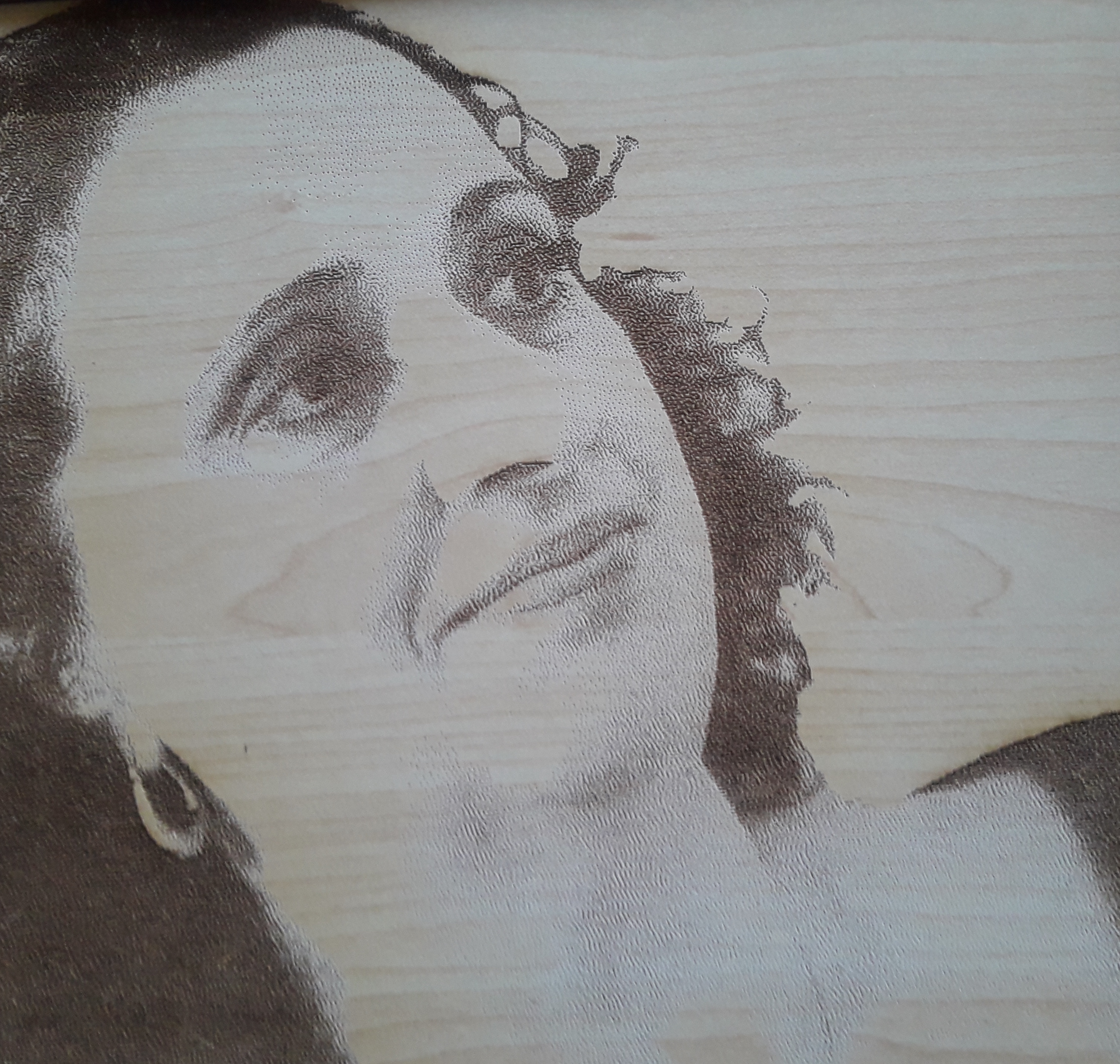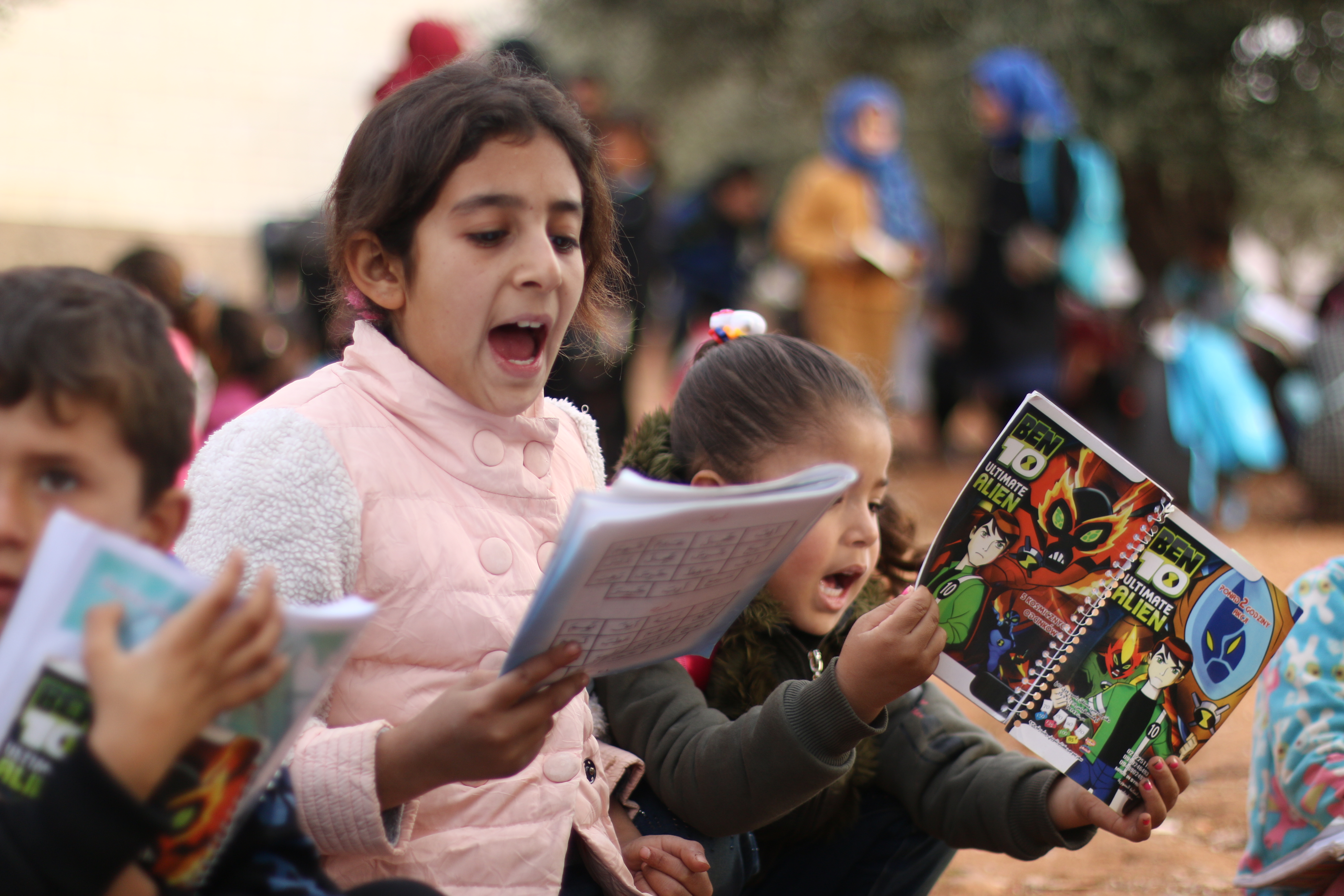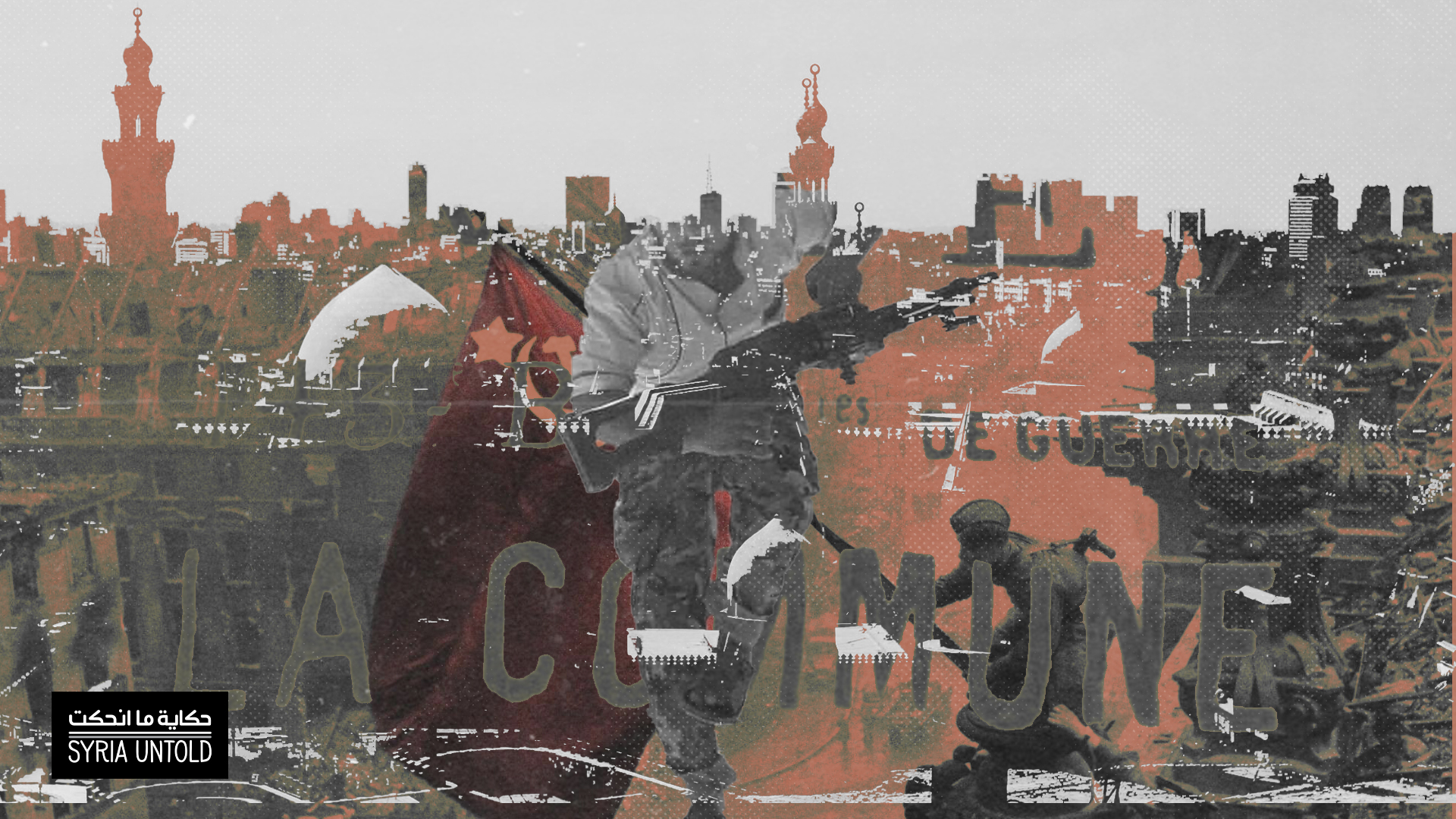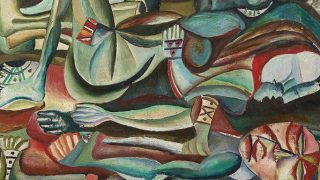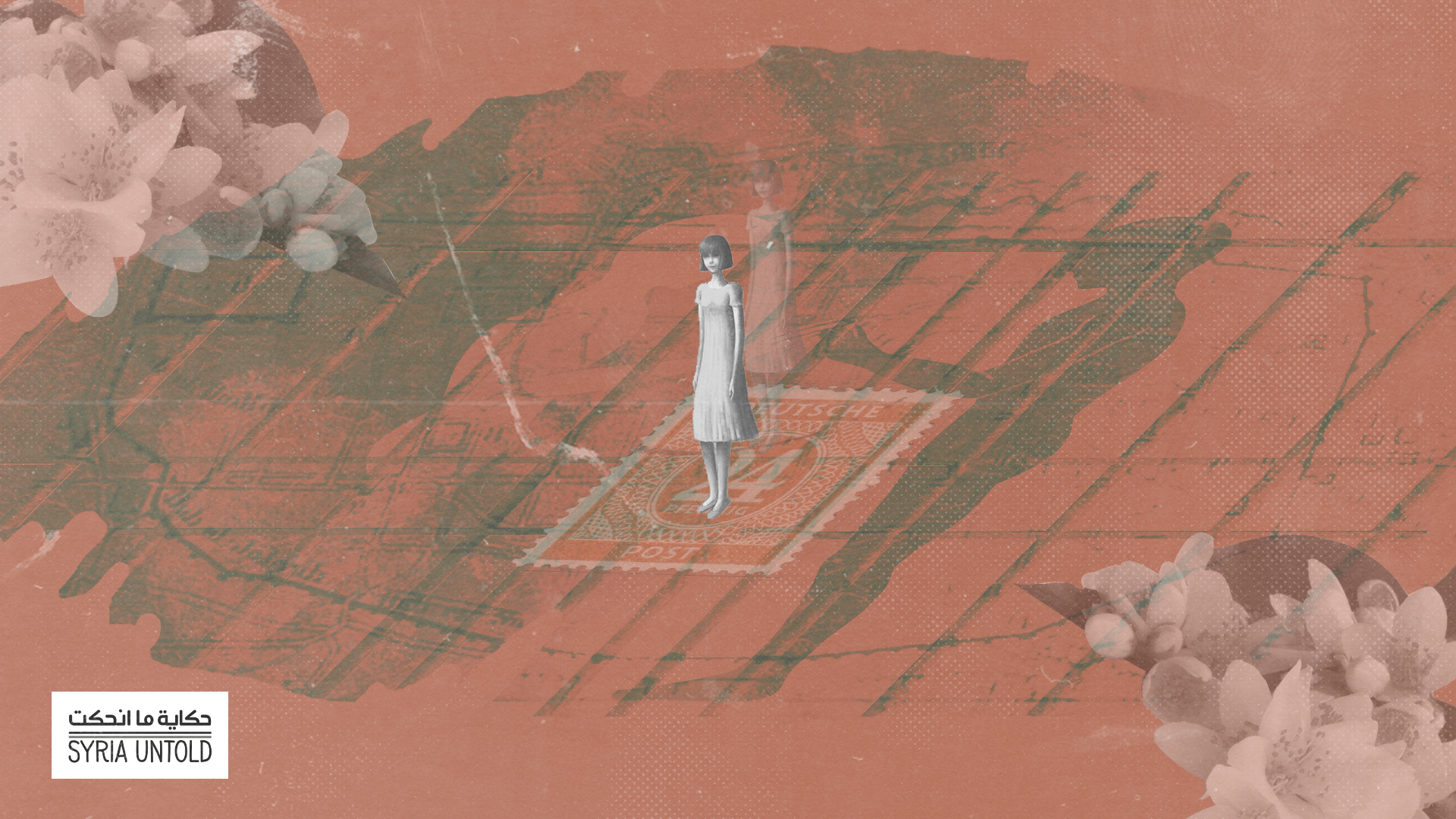Read this article in its original Arabic here.
Three cartons filled with bean and pea husks have been placed at the neighbors’ door. Behold, mouneh season is upon us! Three families live crammed in the one house, where they share the rooms, food and work. They even share the house’s costs, which have become reasons for sharp disputes whose echoes reach my own home.
“We received mouneh jars and a meal of freshly cooked rice with soft and juicy fava beans during the first days of Ramadan,” my neighbor tells me. Authentic and much-loved Damascene dishes have become far-fetched dreams, given Syria's worsening economic situation. People are struggling with hunger and unreasonably high food prices, which have increased as the Syrian lira spirals to new lows.
The air in Damascus is no longer filled with the smell of fried eggs ready to be served for suhoor, the early morning meal many observant Muslims eat before beginning their daily Ramadan fast. Iftar tables are no longer adorned with dishes of store-bought fataat hummus and stewed fuul beans dipped in yogurt, leaving the people who sell them in the throes of hunger.
In pictures: Under olive trees, volunteers teach displaced Idlib children
28 December 2020
COVID-19 reveals the reality of governance in Syria
07 November 2020
Abu Hassan*, 60, sells fuul and hummus in Damascus’ Saroujeh market. He complains about the lack of demand. He had to reduce his production of msabbaha, chickpeas in tahini sauce, due to the decreasing demand and the ongoing power cuts that threaten to spoil it. “Chickpeas have a short shelf life,” he explains to me. “In the past, I would boil three kilograms of chickpeas daily. Now, I barely boil one kilogram.” People now order half a kilogram of chickpeas or fuul at most, without oil, because of the skyrocketing olive oil prices, Abu Hassan says. The price of one liter now amounts to 13,000 Syrian liras (about $4.50 at the market rate).
Abu Hassan’s face writes of disappointment. “They are now using vegetable oil instead, although it makes the fava beans lose their original taste!”
As a fuul and hummus salesman, Abu Hassan sees people daily. “Daily workers, people covering night shifts even in Ramadan, hawkers and stall merchants have given up the ritual of iftar at home due to the high transportation costs,” he says. “Besides, they are striving almost hopelessly to earn money that would make up for the sharp inflation and the low and faltering sales. They only buy beans for their own iftar. I am certain they are unable to satiate their hunger, especially since they buy their meals without oil, onions, pickles or bread, to reduce costs. Most bring their own bread with them in the morning.”
Abu Hassan recalls one young man who begged him recently for an onion and two chili pepper pickles.
Farewell, Ramadan sweets
Ramadan has always been tightly interwoven with sweets, from naeem (soft Ramadan bread) to maarouka (sweet bread) and nahsh (pastry with filling). This year, though, they are scarce because there aren’t many buyers anymore.
In Bab al-Jabiyeh, where the most popular shops for selling qashta (condensed cream) and qatayef (stuffed pancakes) are located, a boy stops a woman and tells her, “My sister is sick, and she wants qatayef filled with cream!”
Competition is fierce to grab the remaining vegetables from the past day: soft tomatoes, potatoes with broken or blue ends, wilted lettuce and tender, small onions.
Given the general situation, it is irrelevant how sick the boy’s sister might actually be. His is a humanitarian request, at a time when giving has a special spiritual and moral meaning. The woman approaches the owner of the smallest cream shop, hands him 1,000 SYP and says, “It’s your call! I didn’t even buy cream for myself!”
The sellers of popular sweets complain about their dwindling sales and profits. Abu Haitham, who sells sweets in the Sayyida Zainab quarter, walks with a limp after having recently lost two toes due to diabetes. He laments: “The profit margin was around 40 percent for each kilogram of sweets. Now, it is less than 20 percent, and it can barely cover the rent, labor cost and generator bills.”
‘You shall know them by their bags’
“You shall know them by their bags”—the words of this saying seem to ring true for Syrians, amid today’s economic crisis. Their shopping bags contain a little bit of everything, now that Damascenes have grown used to buying food piece by piece. The days of buying and selling per kilogram are long gone. Today it is two cucumbers, three green bell peppers, a bunch of parsley and a bunch of purslane.
Mending what has been broken
12 February 2021
Syria’s lucrative detainment market: How Damascus exploits detainees’ families for money
13 April 2021
The price of a bunch of purslane reached 500 SYP (25 cents). Fattoush, a salad of seasonal vegetables, is a main dish in Ramadan, but even with this simple dish, one must ration. The ingredients of a small plate of fattoush are distributed in limited portions to family members at iftar. “A bit of everything is better than having leftover food and throwing it away,” one woman tells me.
Salads in Damascus have withered to just lettuce and a bit of tomatoes, as one kilogram of cucumbers now costs 2,000 SYP (about 70 cents). Competition is fierce to grab the remaining vegetables from the past day: soft tomatoes, potatoes with broken or blue ends, wilted lettuce and tender, small onions. People fight over them because of their cheap prices. One elderly woman tries hard to gather the lettuce leaves strewn across the floor of a vegetable truck. Grocers blame the high prices on their inability to secure fuel to transport the vegetables.
Quantities are small, except for bread bags that look big and some other bags that contain large amounts of herbs that are commonly known as bieh (bargains). They are sold at low prices, without being weighed first, and consist of spinach or chard.
With the rise in prices and with bread becoming scarce and hard to secure, except after queuing for hours, Syrians have acquired a new habit. They gather the crumbs of stale, toasted or poorly prepared bread, place them in bags and hang them from garbage bins for passers-by to take. A woman in her 30s, with an emaciated figure, a pale face, worried eyes and tightly closed mouth examines one of the bread bags before grabbing it. “Good, now I have secured the breadcrumbs,” she says to herself. The breadcrumbs might be the only iftar or suhoor meal for her and her children.
Standing on the edge of the pavement, the same woman spots a white plastic box covered with transparent nylon. She inspects it and discovers fresh zucchinis, recently picked. Joyfully, she says: “Great, now I have secured a dish of zucchini mfarakeh for breakfast.” She takes her spoils and walks on.
Declining role of NGOs
The role of NGOs that used to offer Ramadan meals has largely diminished due to the scarcity of donors and the high cost of securing aid. The shortage of help comes at a difficult time: some 12.4 million people inside Syria are now estimated to be food insecure.
The pandemic has been a good excuse to evade family invitations. It seems that a quasi-collective decision was taken and implemented!
Sitting in a decrepit passenger bus, a woman calls her husband to reassure him that she has secured an aid basket. She sits on a narrow iron side seat, looking happy despite the clear concern on her face and the trickles of sweat on her forehead, as she attempts to dry them with a torn tissue paper. She is 40 years old and wears a colorful children’s shirt—perhaps she borrowed it from her son.
Her husband asks her to open the box and tell him what is inside. She tries to delay that, but upon his insistence, she opens the carton and begins counting. Nearby passengers join in to help her name the components. When she is finished, most of them ask her how to get a similar box. “Does it require a rent contract, a death certificate, a family ledger?”
“I have no idea. My husband registered to get it.” She falls silent.
Coronavirus: A blessing or a curse?
It is true that the fatal coronavirus pandemic has claimed many lives over the past year and cast a state of panic over Syrians, especially amid their inability to follow the necessary preventive measures or personally secure the treatment expenses.
Be that as it may, the pandemic has been a good excuse to evade family invitations. It seems that a quasi-collective decision was taken and implemented! No invitations for anyone outside the same family. If an invitation is inescapable, then sharing meals is one of the solutions, under the pressure of unreasonably high prices, limited means and tough economic circumstances for everyone.
The relationship between Damascus and its inhabitants has turned into one of enmity—emotional enmity and lack of communication. People fear the worst, and repeat: “God help us, if the worst is yet to come!” Nevertheless, they hold to a sliver of hope in a narrow corner of their souls and pray for the best.
This country has become so constricting that it suffocates its people, and dry, like a breadcrumb that even hungry birds resent. Life in Damascus is intolerable. Khaled, a doorman who was displaced to Damascus some time ago, laments: “Oh, how I regret my fear of riding across the sea and leaving this country!”
He speaks the words bitterly, while a song’s lyrics echo in the street: “Everything closed in on us until all was lost.”
* SyriaUntold has changed the names of people quoted in this article, to protect their safety.


